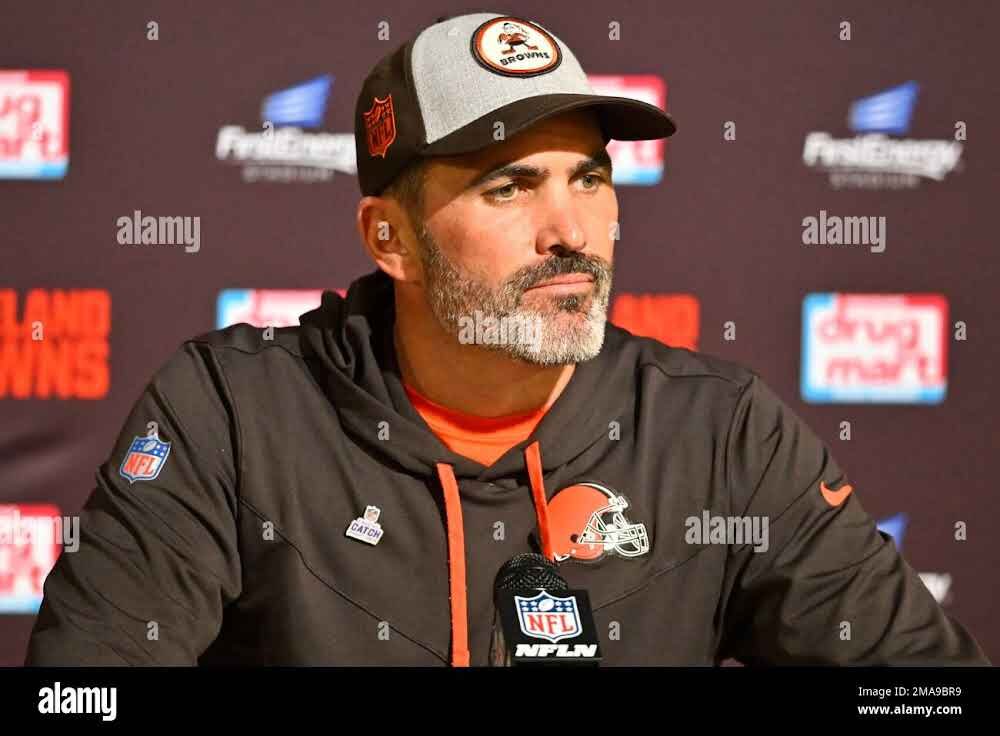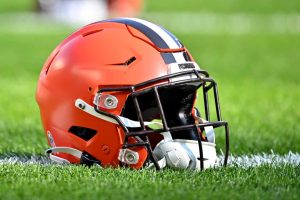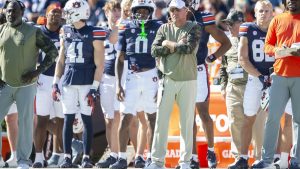
Houston In the visiting locker room, Cleveland Browns defenders, who had all season long embraced coordinator Jim Schwartz’s mantra of playing with “effort, swag and badassery,” were largely silent.In its biggest game of the year, the Browns’ top-ranked defense just delivered their worst performance of the year.

Against Houston Texans rookie quarterback C.J. Stroud, Cleveland’s renowned pass rush, led by front-runner Myles Garrett for Defensive Player of the Year, managed just one quarterback hurry and zero sacks. The outstanding Cleveland secondary let Houston receivers go for huge plays that brought back memories of the team’s previous season’s mistakes. Additionally, Cleveland’s once-aggressive and sure-tackling defensive backs failed miserably in their repeated attempts to contain Houston’s ball carriers.
“Today was not our best day to have a bad day,” Browns head coach Kevin Stefanski remarked. “Just disappointing.”
Did they ever? And boy, was it ever.
It could have been worse, but the young Texans humiliated the Browns 45-14 on Saturday to move on to the wild-card round. The Texans could have scored sixty points if Houston tight end Dalton Schultz had caught a downfield pass that bounced off his hands on the opening drive and if Stroud had not thrown an open Nico Collins in the end zone during the second quarter.
Denzel Ward, a Pro Bowl cornerback, remarked, “We didn’t show up.” “We needed to show up and we didn’t.”
The Browns appeared to have everything it took to go far in the playoffs when they first qualified. Of all the teams to qualify for the postseason, Cleveland’s defense had been the most formidable. In October, the Browns shut down the top-ranked offense of the San Francisco 49ers. In November, they shook up Lamar Jackson, the potential MVP. And in December, they put on a series of dominating performances that propelled them into the playoffs.
However, when it mattered most in January, Cleveland’s defense was ineffective.
Stroud left the game early in the fourth quarter, having completed 16 of 21 passes for 274 yards and three touchdowns.
There was never a chance for another Cleveland comeback thanks to back-to-back pick-sixes by Browns quarterback Joe Flacco. But even before that, Stroud was manipulating the Browns defense. The Browns defense has given up the most points this season to the Texans with 24 in the first half. Furthermore, Cleveland has given up the most yards in a half this season—286—to Houston.
Dalvin Tomlinson, the defensive tackle, stated, “They outplayed us.” “I never imagined saying something like that. We didn’t play football according to our norm.”
Houston identified Cleveland’s weaknesses frequently and early on. In order to set up the first field goal, they isolated the 6-foot-4 Collins against Newsome, resulting in a 38-yard completion. Later, the Texans targeted rookie safety Ronnie Hickman, who was undrafted, for failing to stick with Schultz on a simple 37-yard touchdown pass that went the opposite way. As a result of his four tackles for loss, Houston was able to take advantage of linebacker Jeremiah Owusu-Koramoah’s aggression, which set him apart from other Cleveland players on both sides of the ball.
The Texans used a fake pitch in the first quarter to draw in Owusu-Koramoah and the other linebackers from Cleveland. Collins took advantage of the opening to coast in for Houston’s first score. Houston’s subsequent possession began with Stroud rolling off a play-action pass. Owusu-Koramoah pursued Stroud along with defensive end Ogbo Okoronkwo, rather of staying with tight end Brevin Jordan, who appeared to stay in and block on the play. After Stroud threw the ball to the unguarded Jordan, he sprinted past Martin Emerson Jr., the defender, and scored a touchdown that was 76 yards long. The lead was regained by the Texans, 17–14, and it was never lost.
Owusu-Koramoah, who accepted responsibility for the tight end touchdown, stated, “It just comes down to doing our responsibilities and being patient with our jobs and make sure we fulfill those.” We are accountable for those errors.”
The Browns continued to make errors. And when it became clear that the Texans and Stroud would be too much for Cleveland to slow down, Schwartz decided against making any significant changes, particularly to his coverage.
More than any other defense in the league, the Browns employed single-high safety coverage 66% of the time during the regular season. Next Gen Stats indicates that on 81% of Stroud’s dropbacks on Saturday, Cleveland ran at a single-high percentage. Stroud shredded the Browns on those plays, finishing 13 of 17 throws for 228 yards and two scores.
“[We were] going to ride with what got us here and he’s not going to change up,” Garrett stated. “There (weren’t) going to be any magic calls that (were) going to get us out of anything or get us doing anything.”
Conversely, the Browns failed to muster much of an offensive response against the youngest quarterback (22 years, 102 days) to win a postseason game in Super Bowl history. In the postseason, the Browns failed to display their fierceness and performance when it counted most.
It’s really unexpected, Newsome remarked. “I still don’t honestly feel like it’s real at this moment.”







